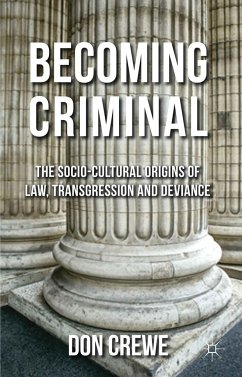
The Victim in Criminal Law and Justice

PAYBACK Punkte
38 °P sammeln!
Utilizing Foucault's genealogical method, this book traces the development of the victim from feudal law, arguing that the historical power of the victim to police, prosecute and punish offenders informed the modern criminal law and justice system. This book advocates the victim as an agent of change, a new perspective for today's justice system.














